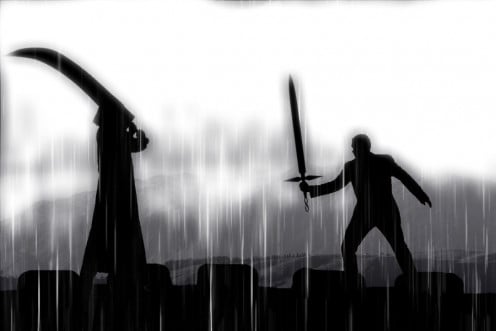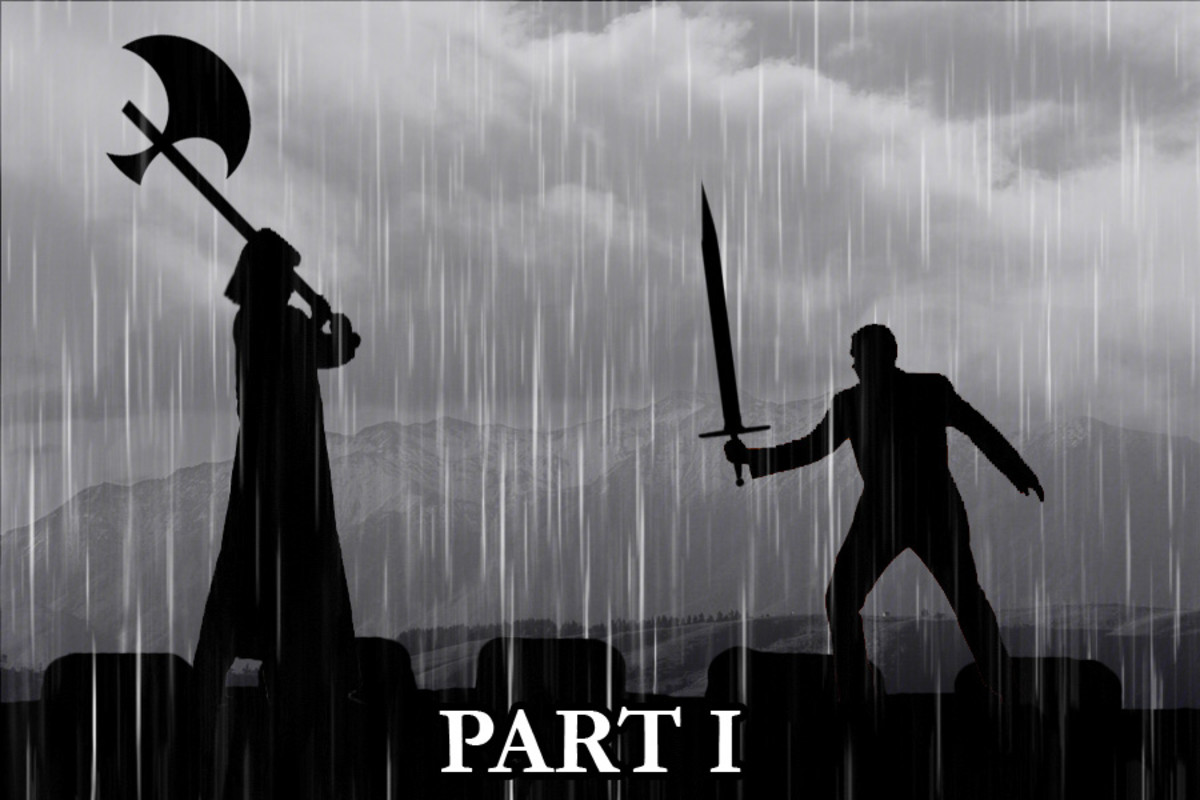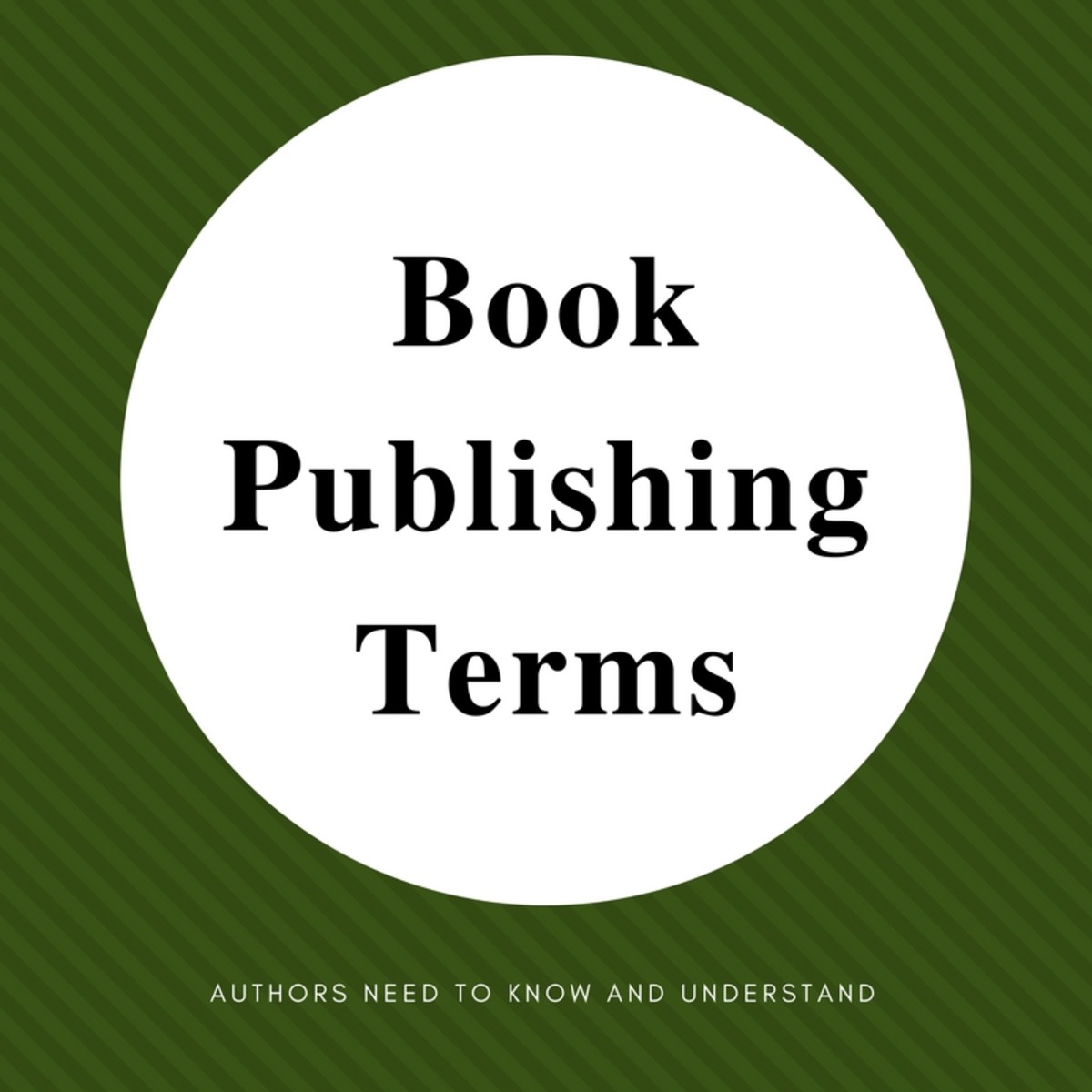My Struggle Writing an Epic Fantasy Novel: Publication

Roughly three years ago I wrote an article titled “My Struggle Writing an Epic Fantasy Novel”. I wanted to chronicle the steps I took to turn a fifteen page short story into an 808 page novel. It was important to me because so few fantasy authors are as open with their process as writers of other genres. Giving a window into the world of my writing was a way of documenting what I had done, while at the same time providing an example for writers who were thinking about attempting the same thing. It was therapeutic to write, but even then, I knew it was incomplete. I had always intended a final section when I published my book, but I had no idea how difficult that would be.
The Publishing Dinosaur
I’ve said before that my writing dream involved walking into a bookstore and seeing my book on the shelf. Since self-published novels couldn’t make it onto those shelves, I turned to the traditional route. (More on self publishing later.) For those unfamiliar, the traditional route of publishing involves finding a literary agent. Most big name publishers, the ones that can get you into bookstores, do not accept submissions from writers who don’t have agents. It’s kind of an insurance thing; if you were good enough to get the attention of an agent, then you are good enough to be considered for publication. So, in that regard, agents are like the first line of defense against crappy novels. Think of yourself as a one man army trying to lay siege to a giant stone fortress. Agents are the archers trying to cut you down before you can get into the city. Though, I suppose ‘crappy’ isn’t the best description for novels agents are rejecting. They reject projects for a number of different reasons. Maybe that genre isn’t popular right now, maybe the book is too long, or maybe they can’t figure out how to market a complex concept. It all boils down to one thing; the agent doesn’t think they can sell it to publishers or readers. And, since a legitimate agent doesn’t charge reading fees, or make money until the book sells, they are very reluctant to pick up new authors.
I called this section the publishing dinosaur because this model is starting to show its age. The ebook revolution has forever changed how books are purchased, distributed and read, thus closing the gap between books that are self published and those that are from big name publishers. It has gotten to the point where agents are recommending their authors self publish, rather than go through a publisher, and many publishers are snatching up successful self published authors and signing them to contracts to keep themselves relevant. But, I mention all of this stuff because I amassed 52 rejections from the traditional publishing industry over the course of one year. Given how long it takes to get a response, and how few agents represent any given genre, this is quite a few rejections. I’m not bitter, and I believe agents and publishers have a very important role to play in the new market that emerges, but it made for a particularly difficult year.
Steve Hamilton is another author that gave me good advice along the way.
Close, but no cigar.
There are two instances, over the course of that year, where I will say I was close to my dream. In reality, I couldn’t have been further away, but they were both very influential for how I would proceed. The first came in the form of a personalized response from an agent. Most agents will give you a generic rejection letter, which means you have no idea why they thought your book wasn’t good enough. It is extremely rare, and lucky, to get a response from an agent explaining why they rejected you. I received one out of fifty two. The agent told me that a 230,000 word novel was too large to market, but that if I ever cut it down or revised it, she would be willing to look at it again. This was the best news I had gotten on the project, but it was also mildly infuriating because I could have resolved the issue thirty rejections prior if someone else had bothered to tell me. I ended up splitting the novel in half and resubmitting it. While that agent ended up passing, I thought that ultimately the shorter start was a much more digestible, and marketable, book and I proceeded with that as my new focus.
The second close call with success came in the form of a brief contest held by Harper Voyager, a well known fantasy/science fiction publisher. I call it a contest, but that isn’t entirely accurate. Basically they opened submissions up to writers without agents for a period of two weeks. I was particularly excited about this opportunity because it came just after I had split the novel in half. And, I had just gotten a bit of advice from author Steve Hamilton, who advised me to keep an eye out for contests I could submit my book to (since he had hit it big through a contest as well). It seemed like the stars had aligned to give me a secret pathway through the defense wall. This was made more exciting when they passed their due date for responses and I still hadn’t gotten a rejection. However, as the months passed, it became more and more apparent that something wasn’t adding up. It turns out that the deluge of submissions (about 4,500) was more than the publisher could handle. Their original deadline for responses was pushed back indefinitely with sparse updates to the thousands of waiting authors. Yet, still I didn’t receive a rejection. I was convinced that I was set aside for further consideration. What I didn’t realize was that I was one of the very last to be read. I got my rejection four months after the original four month deadline for a total wait time of eight months. To add insult to injury, the one author they accepted already had an agent, even though the rules clearly stated it was for non-agented writers. I feel sorry for the authors still being considered because, as of the writing of this article, they still aren’t done yet.
But these two brushes with success taught me two very important lessons. The first was that my book needed to be shorter, if I was going to market it properly, and the second was that the traditional route of publishing wasn’t going to work for me.

My Battle with Self Publishing
Self publishing has undergone one of the most dramatic overhauls in the history of overhauls. In the not-so-distant past, self publishing was a costly endeavor. As the author, you had to pay for the printing and distribution of your novel, and those novels were not allowed in bookstores or public libraries. This meant that all advertising was on your shoulders. This also came hand-in-hand with a certain stigma. The artwork of the book was haphazard, the paper was cheap and the editing was often shockingly bad. For me, I saw the old form of self publishing as the place where writer’s dreams went to die. Agents, publishers, and most readers just wouldn’t take you seriously, and it would mean a stack of unread books sitting in your garage. I held onto this image for so long that I completely denied, and fought against, the changes taking place. As I mentioned above, ebooks have changed everything. The paper aspect was gone, destroying the barrier made by cheaply produced books. Online services for editing and cover design destroyed the barrier of poor production quality. And online retailers agreed to carry self published ebooks as it cost them no physical floor space, or stock, to house the manuscript. This left only a small entry fee and the burden of self advertising. Suddenly, not only was self publishing viable, it was starting to become the preferred method for new authors.
But still I fought it, acting arrogant as I continued to take my beating from the publishing dinosaur. The realization came rather suddenly when a friend of mine, who is also self publishing, asked the question ‘how much should I charge for my novel?’. When you self publish, you can set the price, which can vary wildly from one author to the next. But one of the options she had listed was ‘free’. The notion that someone could give an ebook away for free completely shattered my perception. See, one of the things that I always looked forward to when I thought of publishing my book, was giving away free copies. I wanted to be one of those proud-pappa authors who was so excited about being published, and so eager to have people read his work, that I would be willing to give away any copy I had, rather than try to actually sell it. I planned on leaving that side of things to the book stores. But the idea that I could give away an ebook for free, rekindled that excitement of people reading my book. And it was then that I realized all I really wanted was for someone to read it. It’s very hard, as a writer, to tell friends and family the same thing over and over again. ‘No, you can’t read it, I’m still editing it’ or ‘no, you can’t read it, I’m still looking for agents’. I’m a writer, and as a writer I wanted people to read my work; I wanted them to talk about it. But the year I spent trying to market the damn thing had completely drained any excitement I had for the product. It had become a cold, heartless business transaction that had pried me away from the heart and soul of writing.
The Final Product

Ultimately, I decided not to list the book for free. Not because I didn’t want to give away free copies, but because I had to seriously consider how to proceed if I still wanted my writing to be a career. You don’t impress industry veterans by telling them you gave away 100 copies of your book, versus you sold 100 copies. And, while e-publishing is easier to get into, I still entertain that dream of seeing myself on a bookshelf, and for that I will still have to keep one eye on the traditional market. But I no longer see self publishing as a place for dreams to die, but rather, one where they have a chance to sprout up. If the traditional market is an exclusive stronghold, then the indie market is a vast wilderness. It’s dangerous, and easy to get lost in, but it lets you run free. And maybe, just maybe, you’ll be cunning enough to build your own stronghold.









